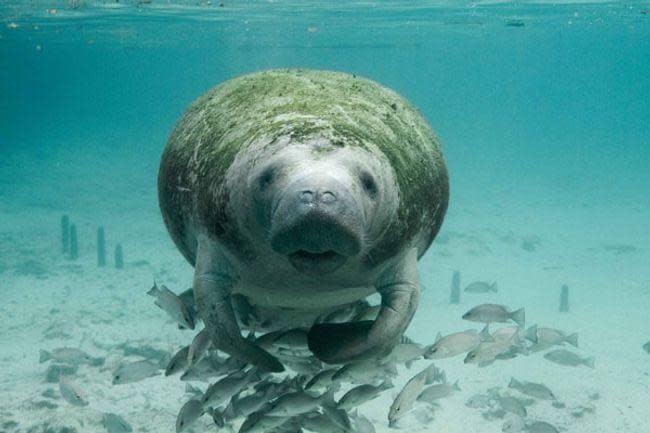Florida Keys National Marine Sanctuary needs more protections | Opinion

When I was 8, I took a school trip to the Florida Keys. The minute I stepped out of the cramped bus and into the fresh open air it was like stepping into a whole new world. The air had a hint of salt that made it feel like the beach no matter where you went. I saw sprawling mangrove trees, beautiful egrets sailing over the ocean and vibrant colored fish in every pool of water. Up until that moment, my worldview had been shaped by highways and shopping centers, rather than free-roaming seabirds and the ocean’s vast expanse.
Generations of students have had similar experiences on school trips to the Florida Keys. When students are exposed to Florida’s wild spaces, we understand why we need to protect these incredible marine ecosystems, not only for the birds and animals but also for ourselves. Sadly, the Florida Keys’ future is under threat: In the past 25 years, the Sanctuary has lost over 90% of its healthy coral cover. A combination of climate change, overuse, water pollution and coral diseases have resulted in widespread environmental losses. Seagrass beds, the key source of food for Florida’s manatees, have lost over 30,000 acres of coverage.
To turn this problem around, the National Oceanic and Atmospheric Administration (NOAA) must strengthen its environmental protections for the Florida Keys National Marine Sanctuary. To do this, they have come out with a proposed “Restoration Blueprint,” which is a proposal that includes strong protections for specific marine zones and policies to increase protection for most of the Keys.
There is still more we need to do, to be most effective, NOAA should ensure protection for large, contiguous highly protected marine reserves, which science has shown to be the most effective way to preserve biodiversity and create resilience to climate change. The agency has done well to incorporate policy that protects specific, smaller areas in the Keys, however we need more large-scale protections.
Their final rule should also do more to protect seagrass beds. The current proposal leaves too many shallow areas at risk. NOAA should adopt a requirement for idle speeds within 100 yards of all shorelines throughout the Sanctuary. This would promote healthy seagrass, a staple for some of Florida’s most popular sea creatures, such as manatees, who have recently lost much of their food source in common wintering locations such as the Indian River Lagoon.
While it has gaps, NOAA’s Restoration Blueprint is a huge step in the right direction. The Sanctuary managers should implement its policies before more damage is done to the Florida Keys’ marine ecosystems.
Florida’s environment has brought young people across the state together. Students on the coast have the opportunity to spend their days on the beach face to face with our ocean's wildlife at the Keys. These experiences help generate a connection to nature unique to the people lucky enough to call Florida home.
We must continue to push for stronger protections for the Florida Keys and to call on NOAA to implement its new restoration blueprint as fast as possible. These protections are an investment in an environment that has sparked wonder and imagination in Florida’s students and youth for generations. We need to protect this incredible place to inspire and open horizons for the next generations to come.

Andres Cubillos is a third year political science and international affairs major at Florida State University and serves as the External Affairs Chair for Florida PIRG Students.
JOIN THE CONVERSATION
Send letters to the editor (up to 200 words) or Your Turn columns (about 500 words) to letters@tallahassee.com. Please include your address for verification purposes only, and if you send a Your Turn, also include a photo and 1-2 line bio of yourself. You can also submit anonymous Zing!s at Tallahassee.com/Zing. Submissions are published on a space-available basis. All submissions may be edited for content, clarity and length, and may also be published by any part of the USA TODAY NETWORK.
This article originally appeared on Tallahassee Democrat: Florida Keys National Marine Sanctuary needs more protections | Opinion

